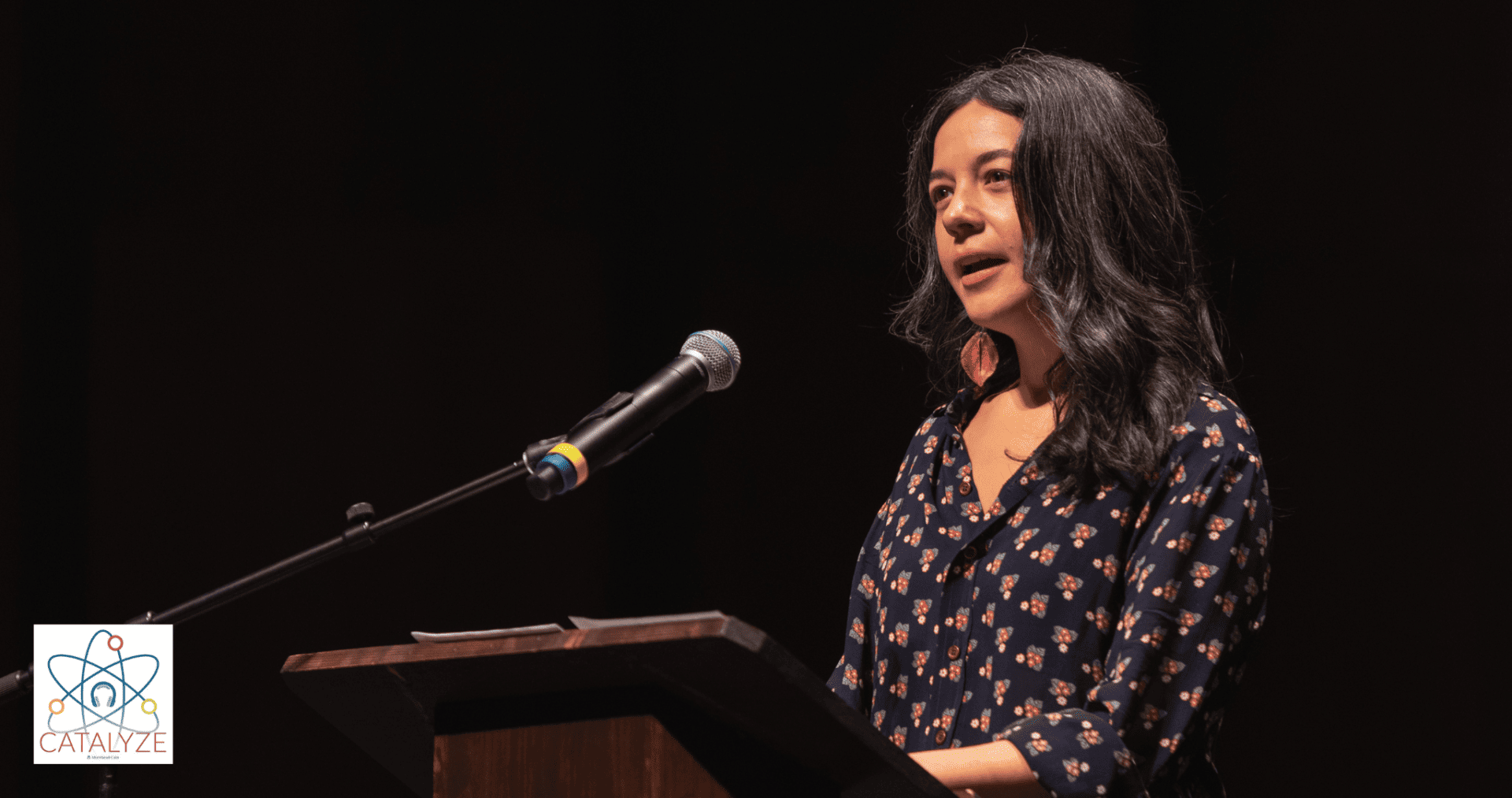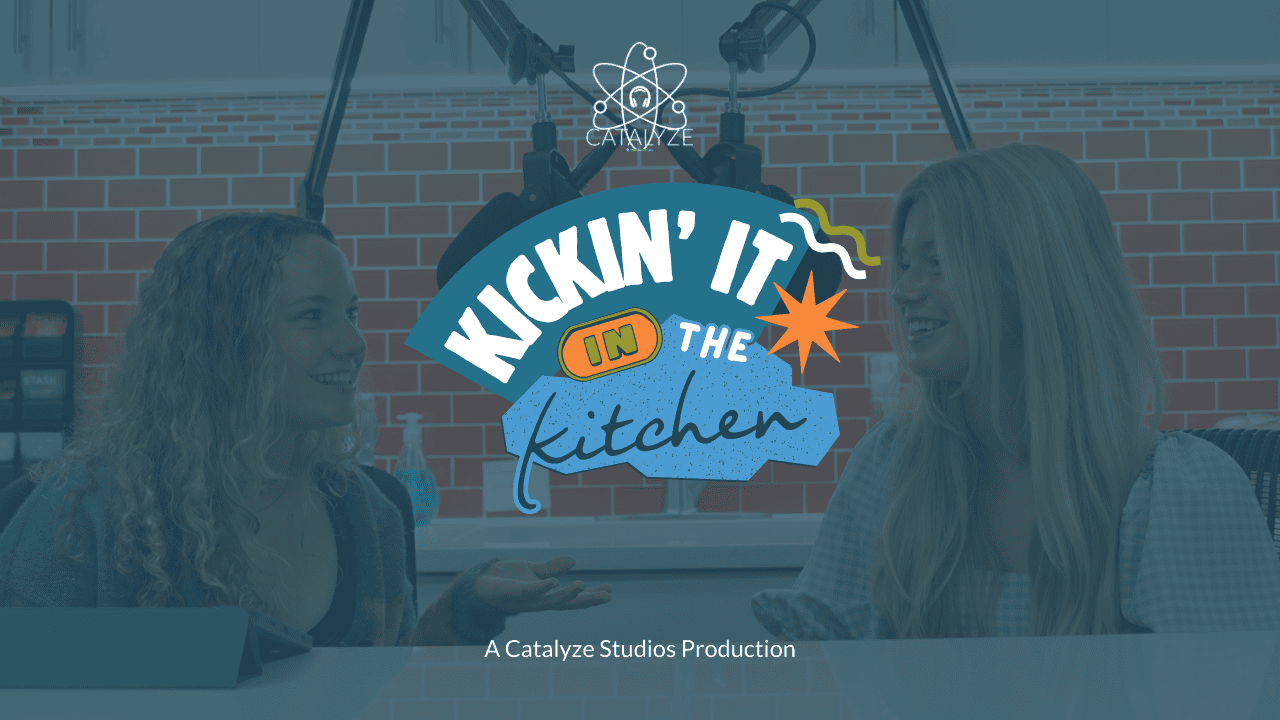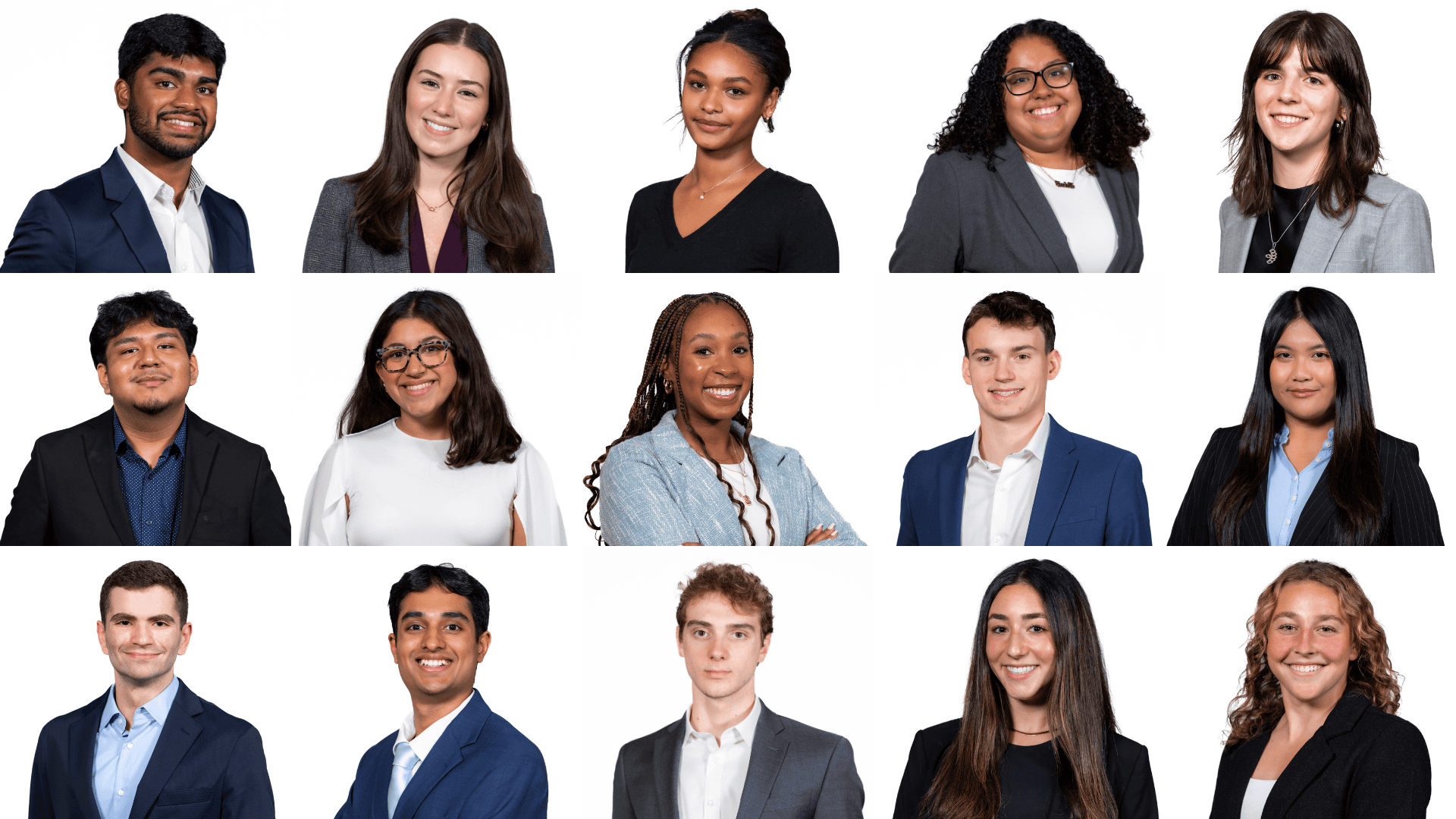
Emily Vasquez ’06
Today’s episode is a recording of a SEVEN Talk from the 2022 Alumni Forum. This talk, given by Emily Vasquez ’06, is entitled, “The Social Life.”
Emily is a Bridge to the Faculty Fellow in Sociology at the University of Illinois at Chicago. The alumna is also an ethnographer of science, medicine, and public health.
You can watch all of the SEVEN Talks on our YouTube channel.
Emily is also a previous guest on the Catalyze podcast (from November 15, 2022): “How a ‘national genome’ can reinforce social inequality, with Emily Vasquez ’06, ethnographer of science, medicine, and public health.”
More about Emily
Emily Vasquez ’06 is a Bridge to the Faculty Postdoctoral Fellow in the department of sociology at the University of Illinois at Chicago, where she teaches courses on the sociology of health and medicine and on race and ethnicity in scientific and medical practice.
Her research examines how social inequalities are entangled with and reinforced through the production of medical knowledge and technologies. She has published on these issues in journals, including Engaging Science, Technology, and Society, American Anthropologist, Perspectives on Science, and Medicine, Anthropology, Theory and led an edited volume published by Routledge in 2020 entitled Social Inequities and Contemporary Struggles for Collective Health in Latin America.
Her current book project draws on 20 months of ethnographic research based in Mexico City examining the fraught politics of diabetes prevention in Mexico, where diabetes has been declared a National Sanitary Emergency. She worked previously in HIV-prevention in Paraguay with a LGBTQ+ grass-roots organization supported by the Global Fund and served for seven years as managing editor of the journal Global Public Health.
How to listen
On your mobile device, you can listen and subscribe to Catalyze on Apple Podcasts or Spotify. For any other podcast app, you can find the show using our RSS feed.
Catalyze is hosted and produced by Sarah O’Carroll for the Morehead-Cain Foundation, home of the first merit scholarship program in the United States and located at the University of North Carolina at Chapel Hill. You can let us know what you thought of the episode by finding us on Twitter or Instagram at @moreheadcain or you can email us at communications@moreheadcain.org.
Episode Transcription
Good morning, everybody.
Among its many impacts, the COVID-19 pandemic has centered the problem of diminishing public trust in medical experts, and concerns over the role of power and politics in science, medicine, and public health. For many, these issues are deeply alarming. In April, for example, I ran across a headline lamenting the ruinous effects of the politicization of public health agencies, such as the CDC. But in these seven minutes, I want to open with you a different conversation about the relationship between medicine and politics. I want to share why embracing what I see as the inherent political nature of medicine has inspired my career.
I teach sociology of health and medicine at the University of Illinois at Chicago. My classes focus on the political dimensions of public health interventions, past and present, political dimensions of our health care system, and of medical knowledge. I ask my students, many of whom are on a pre-med track, to consider how medicine has been leveraged by some to maintain social power and privilege, and how it might be leveraged to challenge social inequality. Similarly, I encourage my students to think about why some seeming moonshots, like mapping the human genome, become national scientific projects, while other challenges, like ensuring clean air and clean water do not.
In short, my goal is to motivate students to recognize medicine in public health as sites of struggle for social justice and to be open to engaging with that struggle. I know this is a complex issue. Lack of public trust in the CDC and political struggles over the agency’s regulatory decisions have cost human lives over the course of the pandemic. But the answer is not to try to isolate medicine and public health from politics, social influence, or controversy, nor does history suggest that such isolation is possible.
One of the examples I share with my students is the Black Panther Party’s health activism in the late 1960s and 70s, documented in the book Body and Soul by Alondra Nelson. While the Black Panthers are more often remembered for encounters with law enforcement, Nelson’s book examines how the party mobilized around the idea of health as a human right, demanding improved health care access, the separation of medicine and market imperatives, and a shift in the balance of power between clinicians and their patients across the nation. Collaborating with leftleaning medical activists, the party built a network of people’s free clinics. They established a clinical culture in which mostly white providers studied authors like Franz Finan (??) to better grasp the relationship between oppression and health, and a clinical culture in which black patients were empowered not only to demand respect from and to question their providers, but also to take medicine into their own hands, offering blood pressure screening, performing PAP smears across their communities.
As the case of the Panther suggests, in the United States and beyond, there’s a history of social movements that have productively targeted medical knowledge and practice. We just often aren’t taught that history.
A second example I share with students illustrates a different kind of politics. In this case, how national political agendas can transform scientific practice. In her book, Exposed Science, Sarah Shostak investigates why the field of toxicology shifted away from its original focus on identifying toxins in the ambient environment, turning increasingly inward, concentrating deep inside the human body on DNA. With this, the question of how particular genetic predispositions influence individuals susceptibility to toxins moved from the periphery to the center of the field. Further, rather than disease prevention, this new emphasis on genetic predisposition meant toxicology shifted toward clinical research, or research that could contribute to treating and curing disease once an individual was already sick. So why this change in toxicology? Scientists explained to Shostak that as the U.S. government boldly committed itself to mapping the human genome, they found the distribution of power and money within the National Institutes of Health increasingly dependent on engagement with the promise of genetic and genomic science. Environmental scientists shifted to focus on DNA, in no small part out of self preservation from a funding perspective, not because this necessarily made for good science.
My own research focuses on the politics of diabetes prevention in Mexico, specifically, the different sets of social actors who have had influence over the kinds of prevention efforts that have been adopted. Working primarily in Mexico City, I follow closely groups of activists who have mobilized in street protests and lobbied Congress to institute and maintain attacks on sugar sweetened beverages. They name names, assigning blame for the country’s chronic disease crisis to companies like Coca-Cola and Nestle. I compare their demands to focus prevention efforts on food policy reform with those of elite entrepreneurs increasingly engaging in health philanthropy in Mexico. These philanthropists have promoted tech-based solutions to the diabetes epidemic, like apps that individuals can use to access and monitor their diabetes risk from their smartphones. And it’s these elites who enjoy easy access to policymakers, pushing an agenda of tech-empowered individual responsibility, rather than taking the processed food industry to task. Both groups are pursuing prevention. Both are working for better health outcomes in Mexico. But they are doing so based on an entirely different set of political commitments and vision for what the Mexican state’s role is in supporting a right to health. As these cases show, rather than being ruinous for medicine or an anomaly during COVID-19, politics and medicine are inextricably intertwined.
My teaching and research centers this fact, not to diminish the authority of medicine, but instead to imagine ways that it might be continually and increasingly enlisted in struggles for equity.
Thank you.


